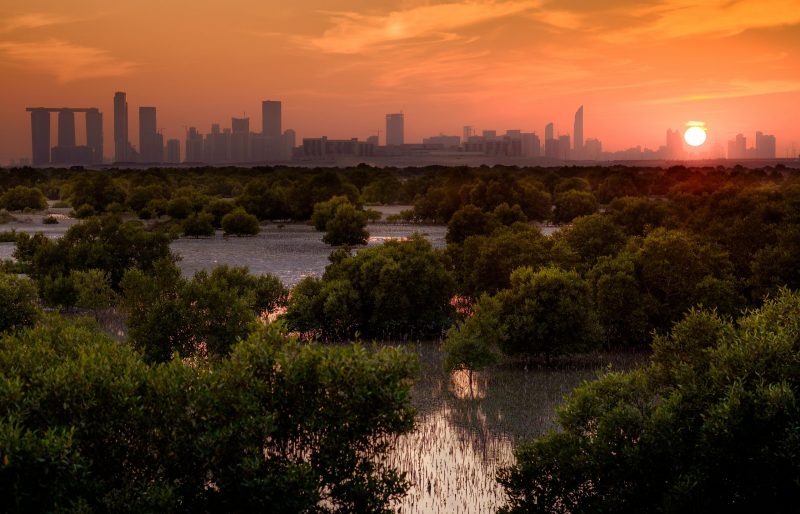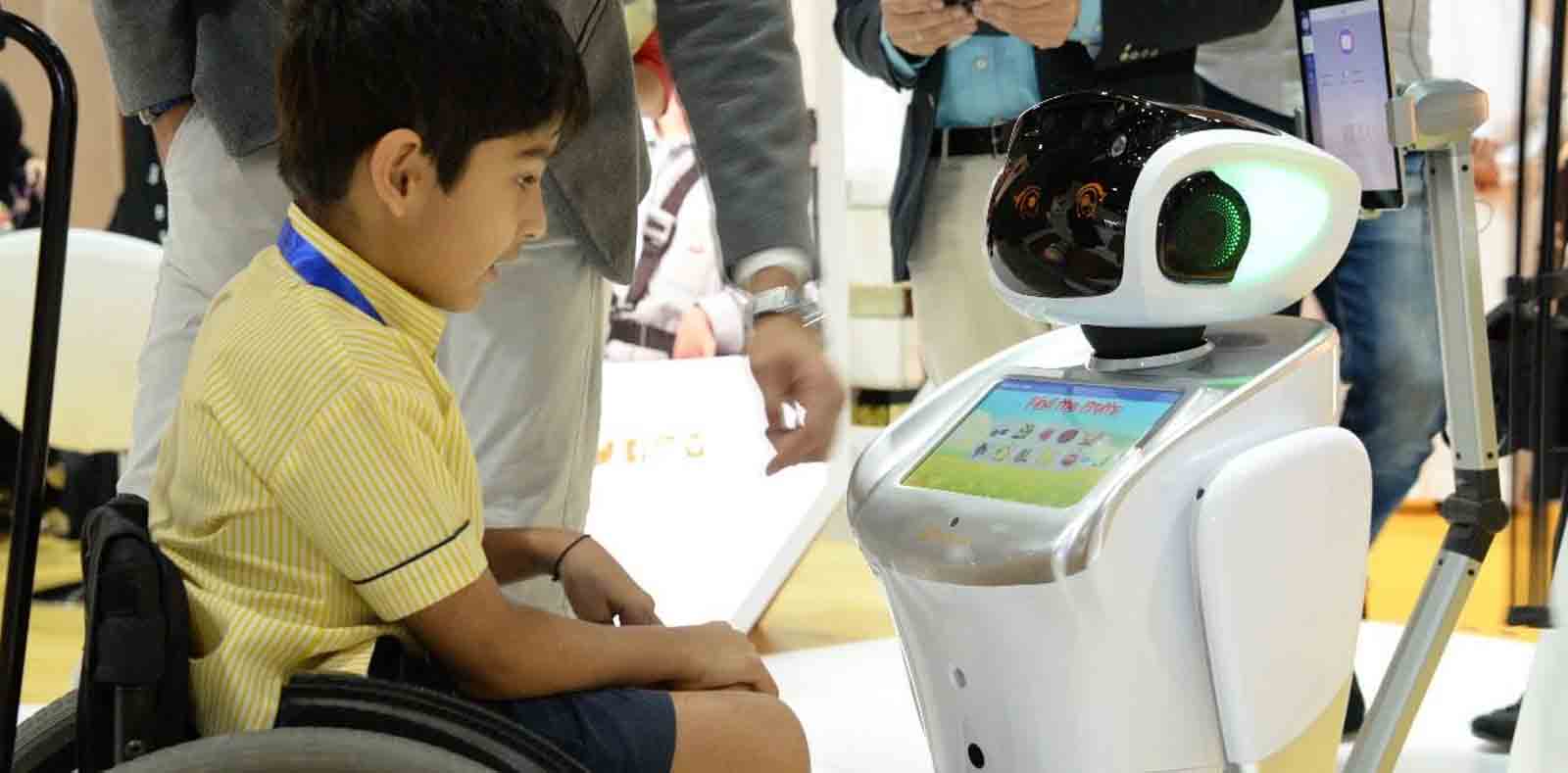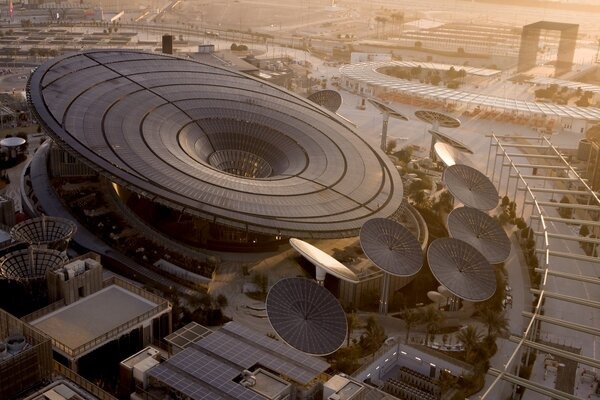His Excellency Dr Thani Al Zeyoudi, UAE Minister Of Climate Change And Environment
Interviews

June 23, 2018, 9:45 am
Your Excellency, can you tell us more about the UAE National Climate Change Plan 2050, approved by the Cabinet in 2015, which reflects the mandates of the UAE Vision 2021 and the UAE Green Agenda 2015-2030?
The National Climate Change Plan 2050 builds on the existing policy and institutional framework for green growth and sustainable development in the UAE. It reflects the mandates of the UAE Vision 2021 and the UAE Green Agenda 2015-2030, and factors in the nation’s unique circumstances, development priorities, resource endowments, and capacity.
With an ambition to achieve a diversified, innovative, climate-resilient economy and a high quality of life, the National Climate Change Plan seeks to achieve the following threefold objectives: (1) manage greenhouse emissions while sustaining economic growth; (2) build climate resilience through minimizing risks and increasing capacity for climate adaptation; and (3) advance the UAE’s economic diversification agenda through innovative solutions.
Through pursuing these interlinked goals, the Plan seeks to enable the nation to achieve continuous growth even while addressing the complexity of climate change, thereby facilitating the transition towards a climate-resilient green economy.
How does the UAE demonstrate its leadership in combating climate change abroad?
The UAE shares common aspirations with the global community in relation to achieving the United Nations’ sustainable development goals (SDGs) and the objectives of the Paris Agreement.
The UAE has been proactively engaging in the climate change negotiations under the UN Framework Convention on Climate Change (UNFCC) and was one of the first countries to ratify the Paris Agreement.
In addition to actively engaging in international climate change negotiations to protect the UAE’s interests, the Ministry of Climate Change and Environment (MOCCAE) is also enhancing domestic climate action efforts, guided by a clean energy target of 27% by 2021 and 50% by 2050. These efforts include the deployment of renewable energy projects at scale, promotion of energy and water efficiency in all relevant sectors, introduction of efficient public transportation systems and protection of our blue carbon ecosystems. The UAE contributes to the advancement of global climate action by sharing our experiences and best practices and transferring our knowledge.
We also support other developing countries with dedicated funds for renewable energy deployment, which have multiple effects, from reduction of greenhouse gas emissions, increased energy security, better access to education and basic services, as well as job creation.
Furthermore, we have been hosting several international platforms to advance dialogue, forge partnerships and take collective climate action, such as the Abu Dhabi Ascent, the annual Abu Dhabi Sustainability Week and the World Government Summit.
During the 72nd Session of the United Nations General Assembly (UNGA) in New York in September 2017, the UAE hosted a roundtable against the backdrop of Hurricanes Harvey and Irma, which devastated many parts of the Caribbean. We announced the first five projects under a new US$50 million grant fund for the Caribbean Islands. The projects include cutting-edge solar, geothermal, and energy storage solutions in the Bahamas, Barbados, Dominican Republic, Saint Vincent and the Grenadines and Barbuda. We believe that renewable energy is the solution for minimizing the impact of climate change and reversing the current trend of increasingly severe natural disasters.
In addition, the UAE pledged US$10 million to the United Nations in humanitarian relief to the Caribbean in the wake of the recent hurricanes. The priority is to get children back to school, restore business operations and public services, and implement utility systems that are resilient to extreme weather.
We are also investing in new innovations, such as a partnership with IBM Watson and the Harvard Kennedy School, which aims to utilize its Artificial Intelligence systems to better forecast weather and climate events.
The Ministry of Climate Change and Environment has established the Emirates Committee for Sustainable Environment Research, to further innovation through research and development in the UAE. Can you elaborate on the direction of the Committee and what the Ministry hopes to achieve by establishing this Committee?
The Emirates Committee for Sustainable Environment Research comprises representatives from a range of different organizations, entities and universities across the public and private sectors and will oversee the development of a research strategy and integrated work streams on environmental sustainability and climate change – key national priorities of the UAE Government.
The Committee will mandate collaborative efforts, information exchange and data sharing (including enabling freer access to the Ministry’s technical data) across government entities and universities as well as through setting strategic objectives for different organizations.
The formation of the Emirates Committee for Sustainable Environment Research is part of the Ministry’s commitment to supporting sustainable practices, efficient use of resources and driving scientific research across the country in a bid to ensure behavioral change in accordance with the objectives of the UAE National Agenda. The Committee will play an important role in sustained efforts to find research-driven creative, innovative and environmentally friendly clean energy solutions in the UAE.
Through this Committee, we hope to fill the gaps that exist with regard to ensuring a relevant knowledge base and scientific evidence to support efforts in pertinent fields including climate change.
The Ministry of Climate Change & Environment is actively involved in engaging with the private sector. What are some key initiatives of the Ministry’s efforts to collaborate with the private sector and do you expect investments from the private sector to mitigate climate change?
The UAE Council for Climate Change and Environment has been established to reinforce the UAE’s policies and strategies on climate change, environmental and sustainable development. The Council will develop plans towards achieving environmental objectives and represent the UAE in regional and international negotiations related to the scope of work of the Ministry. The Council will also create partnerships with the private sector and conduct studies and lead scientific research in fields related to the Ministry’s work.
We strongly believe that the work of the private sector is crucial in mitigating climate change, and are encouraged to note that the UAE based private sector companies are already taking proactive climate action measures. The MOCCAE has established the Environment and Business Majlis to further boost the contribution of the private sector and guide them in ensuring that their activities are aligned with the government’s strategic directions.
The Majlis seeks to identify the appropriate regulatory and legal frameworks in addressing climate action, and encourage the private sector to come up with best practices and solutions that may be rolled out across all environmental and economic sectors.
It also aims to propose innovative and technological initiatives in the environment and climate change sector that are in line with the global direction. These include encouraging private sector companies to adopt corporate social responsibility programs that will reduce carbon emissions, as well as improve and extend the Ministry’s services to the private sector.
The job prospects in the green economy are promising, but require the filling of significant capacity gaps in order to realize them. To prepare the workforce for the transition to green sectors such as clean energy, green manufacturing, and environment-friendly goods and services, the UAE will carry out a comprehensive capacity needs assessment, leverage young local talent by equipping them with technical, managerial, and vocational skills, and forge closer collaboration between academia and industry.
Key MOCCAE – UAE private sector initiatives
EGA
Emirates Global Aluminium (EGA) has already made a great leap in this direction by ensuring resource and energy efficiency through cleaner production methods that are promoted under the UAE Green Agenda 2015-2030. By February 2017, EGA completed a Government Accelerators project to reduce nitrogen oxide emissions from its power plants in 100 days in close coordination with the Ministry of Climate Change and Environment and the Prime Minister’s Office. Within this short period, EGA managed to reduce its NOx emissions by 16%, beyond the 10% target of the Accelerators. This is equivalent to removing 450,000 cars from the UAE’s roads.
Waste – to – energy
The Ministry is conducting a study with Abu Dhabi Future Energy Company-Masdar and Bee’ah aimed at implementing a waste-to-energy conversion facility to serve the emirates of Ras Al Khaimah and Fujairah. Waste-to-energy projects offer benefits including reduction of methane (a potent greenhouse gas) emissions , waste to landfill and fossil fuel combustion for electricity generation.
Artificial Caves
Launched in 2016, MOCCAE is working with Delma Industrial Supply & Marine Services (Delma Marine) on an Artificial Caves Program to support the fishing industry by deploying artificial caves to increase breeding grounds for marine species, thereby stepping up fishing productivity and protecting our marine resources from the onset of climate change. The Ministry’s ongoing efforts in this regard aim to safeguard the sustainability of living aquatic resources and enhance food security in the country – a key element of the UAE Vision 2021.
Collaboration with Lush
Lush, a leading international ethical cosmetics brand, well-known for its environmentally conscious products, in partnership with the Ministry of Climate Change and Environment, recently launched a campaign to raise awareness on the impact of climate change on oceans and marine life.
Other interesting work here in the UAE includes:
The world’s first research facility aimed at finding a way to cultivate food, as well as generate biofuels using desert land irrigated with seawater, is under operation at Masdar City. The program – ‘Sustainable Bioenergy Research Consortium’ – is led by the Masdar Institute with members from leading private sector companies including Etihad Airways, Boeing, Takreer, GE and Safran.
Majid Al Futtaim’s Net Positive sustainability strategy – the major shopping mall, retail and leisure developer across the Middle East, Africa and Asia has adopted a strategy to significantly reduce the company’s water consumption and carbon emissions to the extent that it puts more back into the environment than it takes out, resulting in a positive corporate footprint by 2040.
Please highlight some of the measures the Ministry of Climate Change and Environment is implementing to gain public support and engagement towards the climate change policy actions in the UAE?
Gaining support from all spheres of our society is critical, as polices alone cannot deliver climate action.
For this reason, the Climate Plan was developed in extensive consultation with our stakeholders, and our delegation to annual COPs include a wide range of sector representatives including youth.
We conduct various awareness and communication campaigns, in partnership with concerned stakeholders, following a thorough assessment of the targeted audience’s understanding, motivations, and willingness to engage in climate actions. Furthermore, MOCCAE hosts events in partnership with relevant stakeholders to facilitate the participation of government entities, businesses, youth, households, academia, and media, in addressing climate change.
The National Environmental Education and Awareness Strategy aims to strengthen the community’s commitment to sustainability and environmental protection as well as to educate the youth in leading the UAE towards a sustainable future.
Your Excellency, can you comment on the progress of the implementation of the various initiatives in the UAE to meet the objectives and targets of the strategies set in place by our wise leadership?
The UAE is committed to addressing climate change as part of the global efforts, and it is leading by action.
Climate Action: UAE Accomplishments:
National clean energy target of 27% by 2021 and 50% by 2050.
The Sheikh Mohammed bin Rashid Al Maktoum Solar Park is the largest single-site solar project in the world with a planned capacity of 5,000 MW by 2030.
Masd1ar has been advancing the UAE’s ambitions for renewables and sustainable technology development through addressing the whole value chain, from education and research and development, to investment and commercialization.
Masdar invests in renewable energy projects around the globe, including the solar home systems being installed across 940 villages in Morocco, the London Array offshore wind farm in the UK, and other international projects that advance renewable energy solutions.
The UAE capital is home to the International Renewable Energy Agency (IRENA).
The UAE has mobilized close to US$1 billion to support developing counties with renewable energy deployment, including the US$350 million IRENA-ADFD Project Facility, US$50 million Pacific Fund and the US$ 50 million Caribbean Fund.
New electric car owners in Dubai will be able to charge their vehicles free of charge until 2019, use free designated green parking spaces in Dubai, obtain free electric vehicle registration and complimentary renewal fees as well as Salik tag and license plate sticker identifying the vehicle as an electric car. This initiative supports the Dubai Clean Energy Strategy 2050 that aims to ensure Dubai has the lowest carbon footprint in the world by 2050 and the Dubai Carbon Abatement Strategy (CAS) 2021 that seeks to slash carbon emissions by 16 percent by 2021.










